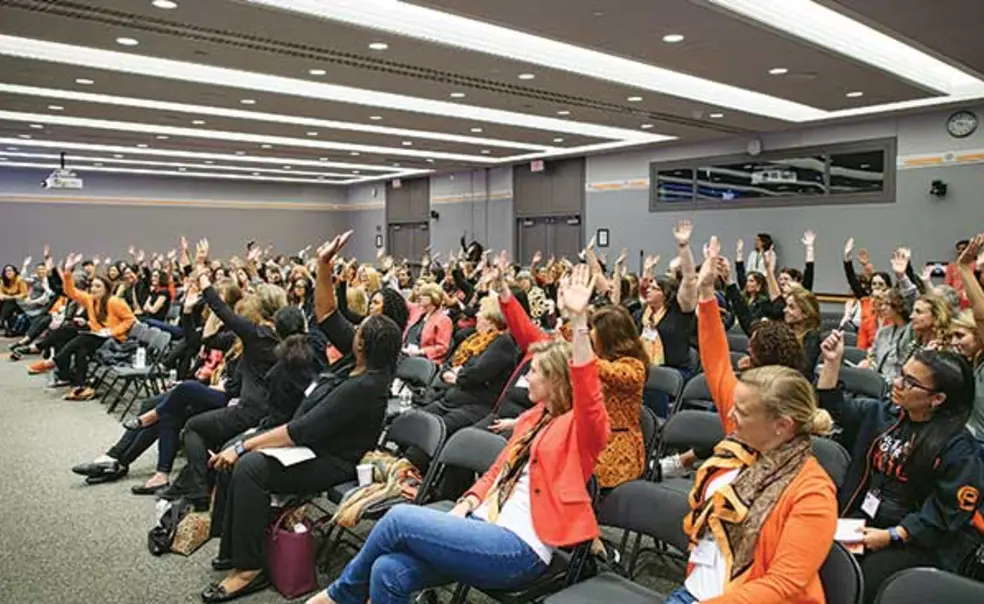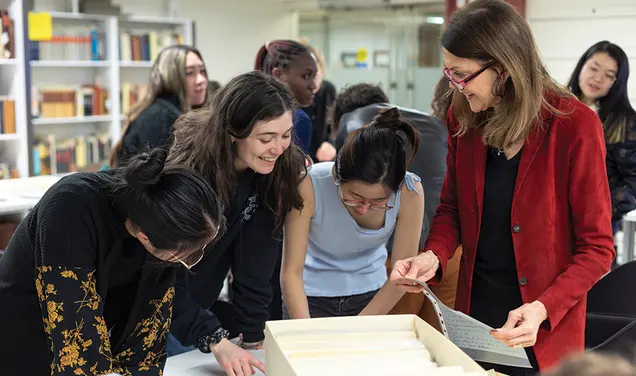Alumnae Unite to Help Each Other Roar Into Office
Perhaps the biggest question to emerge from October’s She Roars conference was, “What’s next?” Almost 3,000 alumnae gathered for the event, representing about 10 percent of all living female Princeton graduates. The energy was palpable. The commitment to getting female voices heard was obvious. And as the three-day conference wrapped up, attendees asked one another how they could build on the motivation and intensity so many of them felt.
For some alumnae, the answer is to elect more Princeton women to office. Linda Frankenbach ’74, a board member of the national group She Should Run, is starting a bipartisan organization called She Runs, She Wins to give alumnae the tools they need to run a campaign. Much more than men, women need encouragement to become candidates, Frankenbach says. The first step for her group will be to try to contact all 29,000 female Princeton graduates to get them thinking about local, state, or national office. She Runs, She Wins will then help them learn the ropes of candidacy, connect them with mentors and networks, and make sure they’re prepared. The group will partner with She Should Run to provide the services for free, while also tailoring programs specifically to Princetonians. (See sheshouldrun.org/PrincetonAlumnae for more information.)
It’s easy to name Princeton men serving in office but much harder to find political alumnae, so Frankenbach says she’s also trying to assemble a database of female graduates to track who’s running and who’s serving in elected office, from local school boards to the national stage.
“There are so many reasons why folks choose not to run. ... It makes the choice a lot easier if they know that there are a group of Princetonians ready, willing, and able to stand with them.”
— Boston City Council President Andrea Campbell ’04
Boston City Council President Andrea Campbell ’04 agrees that a Princeton network can support more women getting into politics, starting on the local level.
“There are so many reasons why folks choose not to run — particularly looking at how toxic the political environment is,” Campbell says. “It makes the choice a lot easier if they know that there are a group of Princetonians ready, willing, and able to stand with them.”
Arati Johnston ’84 is working with other alumnae to figure out ways to help women more effectively use the Princeton network and raise money. Johnston, while serving as president of the Princeton Club of Philadelphia, says she was approached twice last spring about female Princeton candidates making fundraising stops in Philadelphia and realized opportunities were being lost amid haphazard ways of connecting. There’s a “tremendous amount of enthusiasm, expertise, and opportunity in the network that is untapped,” she says.
Laura Ellsworth ’80 says a network to help female candidates would have been a boon in her unsuccessful run for the Republican gubernatorial nomination in Pennsylvania last year. She found that many people simply didn’t know she was a candidate or that they needed to register as Republicans and vote in the GOP primary to support her. A Princeton network pushing out information about candidates would be a powerful tool in winning votes and spurring fundraising, she says, adding: “I would like to think that money follows information.”










No responses yet